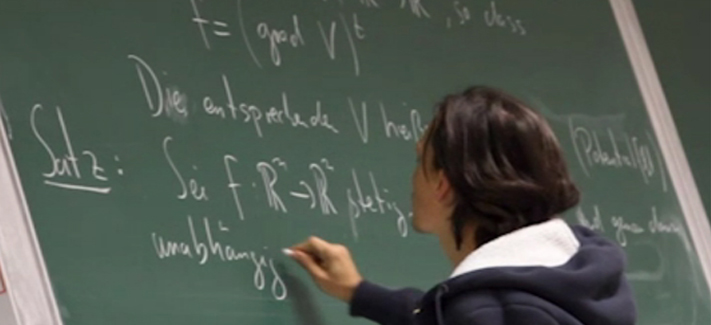connexercise & reflect@math.lmu
- Both projects are aimed at giving students a stronger understanding of the connection between their subject study contents and mathematics taught in school.
- reflect@math.lmu supports the linking of subject competence gained during studies with subject-didactical ideas and methods.
- connexercise@math.lmu is focused on the building of a pool of assignments in order to consolidate lecture contents and show subject analytical relations to mathematics taught in school.

Current courses for subject-specific Mathematics are geared towards the specific requirements of the state examination. However, they are largely not linked to the subject-didactical training and the experience of students when teaching. For many students it is difficult to create a correlation between the subject studies and their practical application in school.
Therefore in the framework of the subproject reflect@math.lmu a course format for the second year of studies will be developed: Based on exemplary contents from the first year of study explicit correlations will be made between mathematical knowledge and working methods from university and school mathematics. After piloting the course in the summer semester of 2016 the format will be integrated and further developed in the sense of a design-based research approach.
Within the framework of the connexercise@math.lmu project at first assignments are developed which consolidate lecture subject contents and especially point out subject-analytical correlations between the lecture contents and the content of school mathematics. Both projects put a focus on the introductory math classes (Mathematik I-III).
In a second step the assignments will be used and tested in a lecture cycle, supported by subject didactics and adapted as needed. In the follow-up they are made available to lecturers together with the corresponding training and support. Testing and implementation of assignments is supported by a Moodle based discussion platform.
Project execution:
Mathematics Education: Prof. Dr. Stefan Ufer; Constanze Schadl

